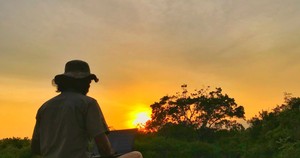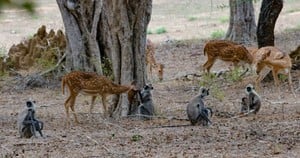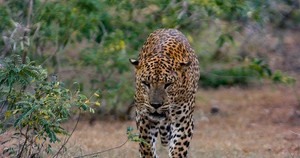- 6 September 2022
Five Things the Wilderness Has Taught Us
We strive to imitate the magnificent tranquility that exists in the wilderness every day. As each day goes by, we begin to understand how dependent we are on the environment and space that surrounds us. The wilderness as we see it serves as our foundation and resolve. Here are five wonderful life lessons it has taught us rangers.
We strive to imitate the magnificent tranquility that exists in the wilderness every day. As each day goes by, we begin to understand how dependent we are on the environment and space that surrounds us. The wilderness as we see it serves as our foundation and resolve. Here are five wonderful life lessons it has taught us rangers.
Resilience
Plants and animals tend to adapt to their surroundings. Sun loving plants will develop smaller, thicker leaves. Shade loving plants will have larger, thinner leaves with more chlorophyll levels to absorb more sunlight. Some aquatic plants have adapted to survive by having highly divided leaves, through which the water can easily flow without any harm or destruction.
In the animal kingdom, crocodiles are one of the most resilient creatures. In the Yala National Park mugger crocodiles escape the drought by moving into borrows; this adaptation plays a critical role in the survival of crocodiles which allows them to evade exposure to extremely high temperatures for longer periods of time.
Being resilient has made us stronger and helps us overcome challenging situations in life. It is important to adapt effectively to the change in the pace of life, as we feel it will enable us to be better human beings in time.
Simplicity
The wild outdoors is an incredible learning environment which teach us to appreciate the small and simpler things in life. If an individual is willing to learn from the wilderness even if its a nature walk in our own backyards, it will teach him to learn and absorb joy and pleasure from the surrounding, the trees, the fresh air, the birds and critters. When man becomes simple he will be far less dependant on complex and false needs. Simplicity is also the pathway to sustainability in our own individual lives and amongst society.
Collaboration
In order to survive in the wild, a species must work with other members of its species or even with other species. There are numerous examples of how collaboration occurs in nature that we can observe.
Egrets and water buffaloes work together in a symbiotic manner. The parasites that the egrets remove from the water buffalo’s skin serve as a source of nutrition. Additionally, they act as a warning system for any danger that may soon arise. Some bee species work together to establish colonies. In nature, nothing takes place in solitude. The idea that everything affects everything else is one that many of us still struggle to understand. People tend to overlook the value of collaborative work. Remember, finishing the race with your team is sometimes more valuable than winning the race on your own.
Survival Intelligence
The great outdoors will teach you many things about the actual physical surroundings that support all life on this planet at its most fundamental level. Learning about nature from a book versus having firsthand encounters with animals, plants, trees, and nature is very different.
Anyone can develop survival intelligence abilities by going on outdoor experiences, tracking animals, gathering plants and herbs, and making connections with the wilderness. Although most people in the modern world have lost their fundamental naturalist mind, humans are fundamentally animals. We have evolved biologically to live in a setting amongst vegetation, birds, and pure air.
Patience
Some plant species keep their seeds dormant within the right environmental conditions they germinate and thrive as a crucial survival tactic. Depending on the species, seed dormancy can extend anywhere from a few weeks to several years. When seeds from wild species are exposed to repeated cycles of dry and wet circumstances, dormancy progressively subsides. Like seeds staying dormant, we need to stay patient to act at the right time and to keep our progress persistently towards success.
Written by the Rangers at Wild Coast Tented Lodge
Images by Thilanka Bodhikotuwa and Lahiru Pasan.

Extended Stay Savings
Extend your stay for 6+ nights at Cape Weligama, save more and enjoy the holiday of a lifetime.



















